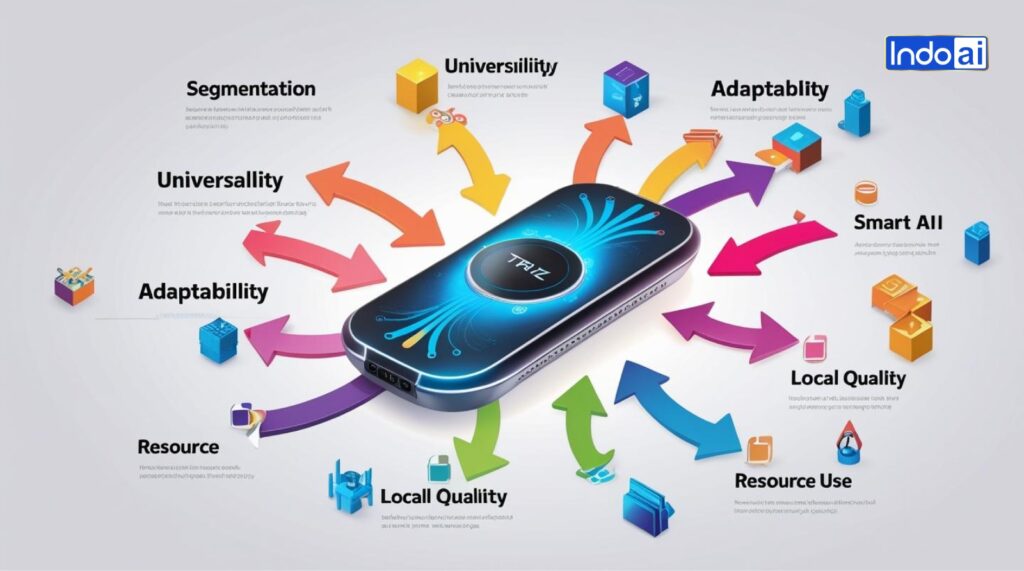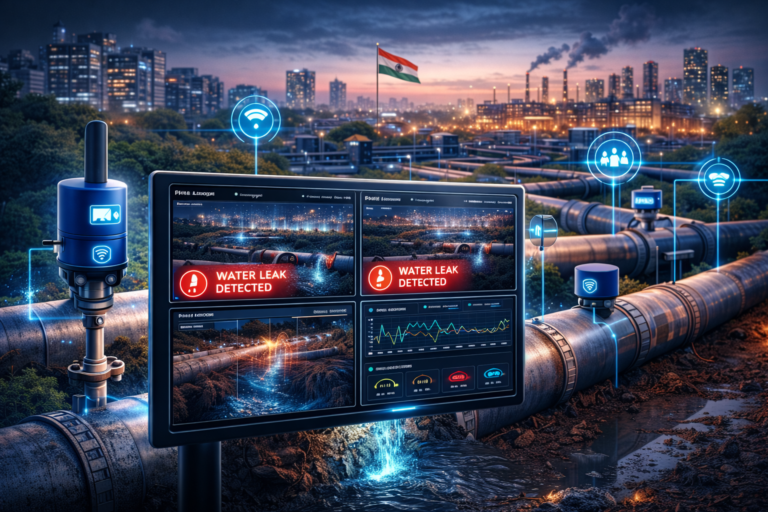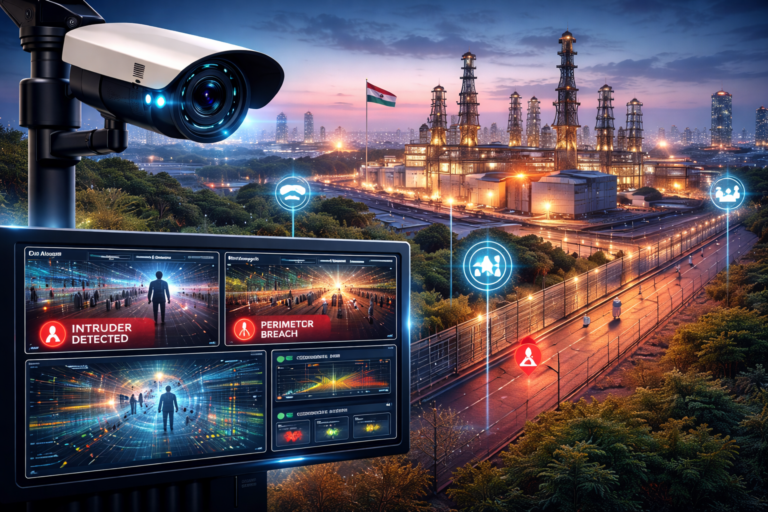Everything is faster, smarter and more flexible in today’s fast-moving world of technology. At IndoAI, we believe that the future of Artificial Intelligence (AI) lies in a new concept we call “Appization“—the process of turning powerful AI models into plug-and-play apps that anyone can use, just like downloading an app on your phone. This makes AI more modular, customizable and easy to use across many industries.
Let’s see what this concept is in a simple way and see how principles from TRIZ, a problem-solving method used by inventors and engineers, help shape this future.

What Is Appization?
Think of smartphone. It has different apps—for weather, music, messaging, banking, games, etc. These apps are modular. You install and update it when required. Now imagine the same idea, but for AI.
Appization means creating a platform where developers can build small, focused AI “apps” or modules. These modules perform specific tasks like facial recognition, fire detection, vehicle number plate reading or even medical analysis. IndoAI’s Appization Platform allows these AI modules to be uploaded, downloaded, updated and run on AI devices—such as our IndoAI AI Cameras.
Just like apps work on phones, these AI modules will work on our cameras, drones or other smart devices. You don’t need to change the hardware. You just change or add new AI apps.
Why Appization Is the Future
Let’s understand why this important:
- Modular Design: Different industries need different AI tools. With Appization, you only use the ones you need—whether it’s for traffic control, school attendance, fire safety or hospital security.
- Easy Upgrades: You don’t need to replace the whole system. You can just update the app.
- Community Innovation: Developers from around the world can contribute their AI modules, making the platform smarter and more diverse.
- Cost Efficiency: Instead of building everything from scratch, businesses can pick and pay only for what they use.
This turns AI from a “one-size-fits-all” solution into a customizable toolkit.
How TRIZ Principles Help Build Appization
TRIZ stands for “Theory of Inventive Problem Solving.” It was created by studying thousands of patents and identifying patterns in how good solutions are created. Let’s see how some TRIZ principles help shape Appization:
- Segmentation: TRIZ says we can make systems better by breaking them into parts. Appization does this by breaking complex AI systems into small, manageable apps. Each app handles one job well.
- Universality: TRIZ encourages creating elements that can do more than one task. Our IndoAI devices are universal platforms. With the right apps, one camera can do multiple jobs—from attendance to fire detection to license plate recognition.
- Adaptability (Dynamism): TRIZ teaches that systems should adapt to changing conditions. With Appization, if a school wants to start using AI for facial attendance, it simply installs that app. Later, if it wants to monitor safety, it adds a fire detection app. The system grows with the user.
- Local Quality: This means improving each part of a system individually. App developers can focus on making their AI module the best in its area—whether it’s agriculture, security or health—without worrying about the whole system.
- Resource Use: TRIZ suggests using all available resources efficiently. Appization leverages our existing AI hardware (like cameras) and simply changes the software to suit new needs. This saves time, money and energy.
The IndoAI Appization Platform in Action
We’re building a global platform where developers can upload their AI models, just like putting apps in the App Store. Customers can browse, install and manage these apps through an easy dashboard. Whether it’s a farmer needing crop health detection or a city authority wanting vehicle tracking, the right app is just a click away.
Final Thoughts
Appization is not just a technical shift—it’s a mindset change. It’s about making AI flexible, modular and community-driven. At IndoAI, we are combining the power of TRIZ principles with real-world needs to create a future where AI is as simple to use as your favorite phone app.
Just like electricity powered homes and factories a century ago, Appized AI will soon power schools, hospitals, streets and farms—with just the right intelligence, at the right place, at the right time.




